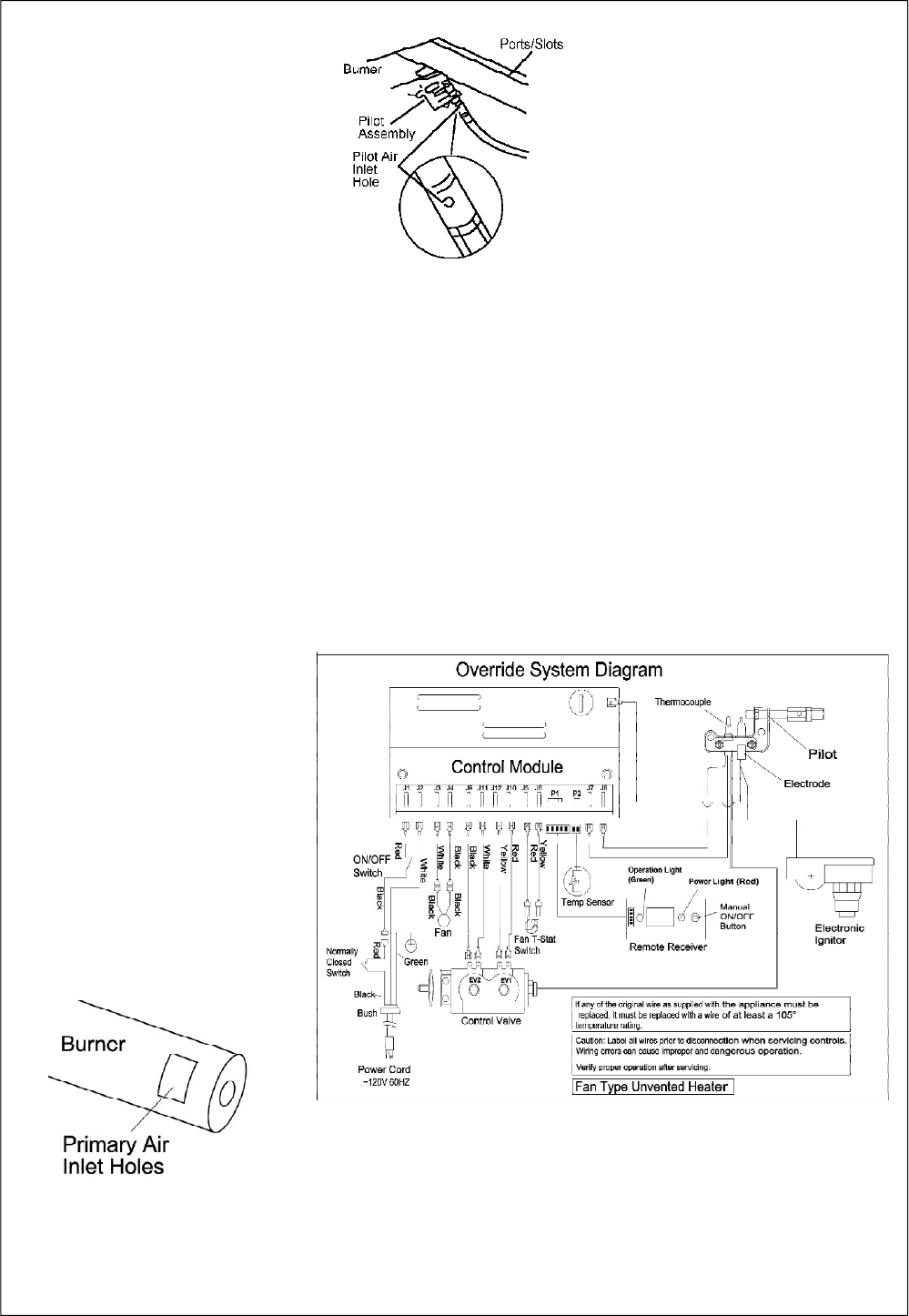
15
Figure 24 - Pilot Air Inlet Hole
Figure 23 - Burner Primary Air
Inlet
MAIN BURNER
Periodically inspect all burner flame holes
with the heater running. All slotted burner
flame holes should be open with yellow
flame present. All round burner flame
holes should be open with a small blue
flame present. Some burner flame holes
may become blocked by debris or rust,
with no flame present. If so, turn off heater
and let cool. Either remove blockage or
replace burner. Blocked burner flame
holes will create soot.
We recommend you keep the burner
and pilot assembly clean and free of
dust and dirt.
To clean these parts we recommend
using compressed air no greater than
30 PSI. Your local computer store,
hardware store, or home
center may carry compressed air in a
can. You can use a vacuum cleaner in
the blow position. If using com-
pressed air in a can, please follow the
directions on the can. If you don't fol-
low directions on the can, you could
damage the pilot assembly.
1. Shut off the unit, including the
pilot. Allow the unit to cool for
at least thirty minutes.
2. Inspect burner, pilot and
primary air inlet holes on
injector holder for dust and dirt
(See Figure 23).
3. Blow air through the
ports/slots and holes in the
burner.
4. Check the injector holder
located at the end of the
burner tube again. Remove
any large particles of dust, dirt,
lint, or pet hair with a soft cloth
or vacuum cleaner nozzle.
5. Blow air into the primary air
holes on the injector holder.
6. In case any large clumps of
dust have now been pushed
into the burner repeat steps 3
and 4.
Clean the pilot assembly also. A yel-
low tip on the pilot flame indicates dust
and dirt in the pilot assembly. There
is a small air inlet hole about two
inches from where the pilot flame
comes out of the pilot assembly (see
Figure 24). With the unit off, lightly blow
air through the air inlet hole. You may
blow through a drinking straw if com-
pressed air is not available.
Figure 25 - Override Control System Diagram
CABINET
Air Passageways
l Use a vacuum cleaner or pressur-
ized air to clean.
Exterior
l Use a soft cloth dampened with a
mild soap and water mixture. Wipe
the cabinet to remove dust.
Logs
l If you remove logs for cleaning, re-
fer to Installing Logs to properly re-
place logs.
l Replace logs if broken or chipped
(dime size or larger).


















